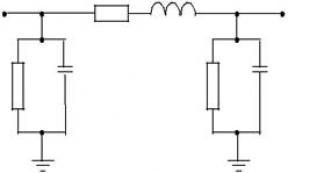Causes of childhood depression. Childhood depression - causes, symptoms, treatment
- Symptoms of childhood depression
- Treatment of childhood depression
We are used to using the word depression in relation to adults (we have already written about how to deal with depression). However, in a sense, it can also be used when talking about children. How can adults understand what is going on in the soul of a baby? Sometimes it is much more difficult for children to experience personal grief: they cannot tell what exactly is happening to them.
Depression in children is not at all “just a bad mood” and not the usual outburst of emotions characteristic of childhood. If the child is sad for a long period, or aggression is noticed in his condition, this is suspicious. If other negative factors unexpectedly begin to appear that affect his communication, interests, studies (crying, "withdrawal into himself", loss of appetite) - all this is likely to be signs of incipient depression, and you should definitely consult a child psychologist about this. .
Depression is a problem that needs to be corrected. But the result of consultations, in the overwhelming majority of cases, is favorable. According to doctors, children whose parents also suffer from this disease are most susceptible to depression. At risk are children from dysfunctional families, such as those where parents are too busy and do not devote time to their children.
Childhood depression can also be caused by increased sensitivity to seasonal climate fluctuations. Such types of it are easily recognized by both the parents themselves and the doctors. They are treated with a change in the regimen of medication and drugs that strengthen the body.
Sometimes depression is caused by certain life factors, a disease, or a genetic predisposition.
Case Study
The grandmother of 6-year-old Katya came to see a psychologist. Grandmother complained that Katya was sad all the time. The girl played little with her peers. The psychologist asked her to draw her family. The girl depicted herself in one corner of the sheet, and her parents in the other. Grandmother explained: the parents are businessmen, they do not have time to mess with the child. The psychologist had a long conversation with the parents, as a result it turned out that they did not understand what was happening with the child.
American medical statistics claims that 2.5% of children suffer from depression, and at a younger age, up to 10 years, boys are much more likely to get sick, and after 16 years - girls.
Symptoms of childhood depression
The main manifestations of depression in a child are considered to be:
- fears that arise for no apparent reason;
- feeling of helplessness;
- abrupt mood swings;
- sleep problems such as insomnia, constant sleepiness, or constant nightmares;
- feeling tired;
- problems with concentration;
- severe anxious thoughts.
Another group of symptoms of depression is its somatic manifestations: complaints of headaches or pain in the abdomen, which do not go away when taking appropriate medications. Dangerous and panic manifestations with dizziness, chills, palpitations, often accompanied by intense fear.
Most often, such manifestations are accompanied by apathy or constant increased anxiety.
Parents and adults also note non-standard behavior that was not previously characteristic of the child: refusal of favorite games, irritability, aggressiveness, manifestations of anxiety, aggravated in the evening and at night.
In children younger age more pronounced violations of motor activity, complaints of poor health, frequent crying. At an older age, irritability, absent-mindedness and lethargy are added to tearfulness and sadness.
Case StudyThe mother of a 10-year-old schoolgirl, Anya, turned to a psychologist. She said that Anya was not interested in anything, she stopped doing homework, often cries at home, does not answer questions. The psychologist asked Anya to mold what she dreams of. She began to sculpt figurines of gadgets: tablet, smartphone, computer. It turns out that the girl was very jealous of her classmates: they had "cool" gadgets, which she was deprived of. However, the mother did not want to talk to the girl about this topic and could not explain everything to her in such a way that the girl would calm down. But classmates teased Anya with pleasure, calling her a "beggar", which offended the girl very much.
The soul hurts both adults and children
 It is quite difficult to identify signs of depression in a child, firstly, because they appear less clearly, and, secondly, it is difficult for a child to tell in detail about his experiences. Therefore, childhood depression is almost always disguised.
It is quite difficult to identify signs of depression in a child, firstly, because they appear less clearly, and, secondly, it is difficult for a child to tell in detail about his experiences. Therefore, childhood depression is almost always disguised.
What adults responsible for the child should always remember is that depression in childhood always accompanied by complaints of poor health: pain, lethargy, change appearance. This leads to the fact that the child is shown to a pediatrician or surgeon, they try to identify the cause, and only after it turns out that there is no physical nature of the ailments, the child is sent for a consultation with a psychologist.
Often depression is expressed in the form of so-called "hypochondriac disorders": when a child complains that he has a serious fatal illness, and uses frightening words to describe his condition. medical terms, somewhere accidentally heard, for example, AIDS, cancer. Often, children have manifestations of anxiety, and if at first the anxiety is pointless, later the child begins to worry and be afraid of certain and specific things: to get lost, to lose his mother, that his mother will not come to the garden for him, that a flood or war will begin.
The most pronounced symptoms of depression in adolescents, most often manifested in thoughts about their own lack of interest and inferiority. Apathy and loss of will are noticeable when a teenager is not capable of vigorous activity and “kills” time with activities unusual for his age, for example, senseless rolling of a toy car. The child is unable to start homework, while scolding himself for the manifestation of laziness and lack of willpower. The teenager starts skipping some unpleasant lessons, and later may completely abandon school.
Adults responsible for the child most often interpret such changes in his character and behavior as laziness or the influence of bad company and apply disciplinary measures, to which the teenager most often reacts with aggression.
Case Study
The father of 13-year-old Danila turned to a psychologist because his boy was often bored at home. The man raised his son alone, the mother went abroad with her new husband. It seemed to the father that if he bought a lot of ultra-modern gadgets, then this would be enough for the boy. However, in a conversation with a psychologist, it turned out that the boy suffered from a lack of emotional ties with relatives: no one was interested in him ...
Treatment of childhood depression
The state of mind of the child should be treated with increased sensitivity, frankly, but calmly talking with him about what worries him. If disturbing symptoms last more than 2-3 weeks, you need to see a doctor. For diagnosis, methods such as personal interviews are very useful - both with the child himself and with his parents.
Psychological sessions are the main treatment for childhood depression; if depression lasts for a long time, antidepressants may be prescribed. In this, the methods of treating depression in adults and in children do not differ. However, a child psychiatrist for the treatment of depression will first of all prescribe psychotherapeutic sessions, or, for example, play therapy for babies. And only after making sure that it does not bring a sufficient effect, he prescribes antidepressants. The risk of childhood depression is significantly lower in families with a calm environment, those where the child, his moods and desires are respected. Influencing a depressed child requires perseverance, and, at the same time, the utmost correctness, as well as emotional empathy.
Psychologist's advice on how to help a child cope with depression?
Adults are not always able to clearly understand how serious the child's condition is, since they tend to look at children's problems from their "adult" point of view. However, the percentage of children who find it difficult to cope with the most common stresses is not so small. Even if it seems to an adult that the problems of a child are insignificant, they may seem insurmountable to the child himself. Do not assume that you understand exactly what the child feels in this moment take his fears seriously:
- It is important to be able manage your own emotions and behavior. Since the reasons are not always clear to parents, they can feel guilty about the state of a child suffering from depression, and, not wanting it themselves, transmit - “broadcast” such a state to the child. As a result, he will feel that he is not understood. Indeed, it is very difficult to communicate with a child in this state, so it is recommended to take a course of family therapy.
- Spend some alone time with your child every day, the child should understand that you are always ready to listen to him without judgment.
- Sports will improve health, not only physical, but also mental. If the child is weak, you can start with walks in the park or pool. as show modern research, the best remedy from childhood depression is aerobics. It is at the same time - vigorous music, various movements and a fast rhythm. All this will help the child overcome depression.
- Diet plays an important role. Bright vegetables and fruits, such as oranges and carrots, are a good help in the fight against depression. An "antidepressive" diet should include bananas and chocolate, which contain endorphins, as well as foods containing thiamine: buckwheat, nuts, and legumes. In winter, sunbathing and multivitamin intake are necessary.
- The family should be happy. You can give each other gifts, arrange joint games or playful contests, invite guests, fool around with cheerful music. Do you know what one of the famous doctors of the past said? When a circus comes to town, it is as important for the health of its residents as opening a few pharmacies: give the child fun.
- You should carefully monitor what exactly your child reads and limit the viewing of aggressive TV shows. It is recommended to make changes in the interior of the child's room, making it brighter and more joyful.
- An effective way to combat depression is sand therapy.
- The Japanese are constantly smiling - this habit is developed in Japanese babies from early childhood. Scientists have proven that not only joy and fun cause smiles, but the smile itself leads to an improvement in mood - reflexively. Teach your kids to smile.
Case Study
Little Zhenya was brought to a psychologist because the boy was very annoyed. The parents said they were going to get divorced - and the boy found out about it. The psychologist asked 11-year-old Zhenya to draw his family. It turned out that the dad for the boy in the picture is definitely “black”. The child adopted the mother's negative view of the man in the family and was very upset. The psychologist helped to carry out the divorce procedure in the family so that Zhenya would have a positive attitude towards both parents.
If you find an error, please highlight a piece of text and click Ctrl+Enter.
Most people believe that depression is a problem that only affects adults, but children are also susceptible to this danger. Depression pervades the child's everyday life, and children are often unable to identify or explain to adults what is happening. If you suspect that your child has depression, read the tips below. They can help you recognize the symptoms and also tell you how to talk about the problem with your child.
Steps
Part 1
Watch emotional changesWatch for changes in children's emotions. It must be remembered that some children have little or no symptoms of depression. If you think your child is depressed, you need to watch for mood swings and changes in emotions that have started showing up recently.
- Also noteworthy is the long-term inability to cope with the loss, which can last for weeks or even months.
-
Listen for expressions of guilt or hopelessness. Perhaps your child has begun to slip the expression “it’s my fault (it’s my fault)”, or “what’s the point, for what? (no point in trying). The presence of such expressions can signal both the strong expression of common childhood fears and the presence of serious problems reflecting stronger feelings of anxiety.
- Feelings of hopelessness can be expressed in many ways: inability to do homework, lack of interest in things that used to attract, a general expression of guilt, even if it is known that the child was not at fault.
-
Beware of increasing anger and irritability. Sometimes a depressed child shows clear and expressive signs. Such children overreact to what is happening, expressing irritation, anger and disappointment about minor things. They feel neglected in the most mundane situations. They also become restless and tend to increase their anxiety levels. Such children lose the ability to remain calm and self-control.
- It can also manifest itself in the inability to tolerate any criticism. Notice if your child reacts too sensitively to rejection or is unable to take criticism normally, even if it is presented in a very mild form. If constructive criticism is perceived painfully, it may indicate problems.
-
Look for signs of a lack of joy and satisfaction in life. It is also necessary to pay attention to the level of happiness of the child. The problem can be detected by noticing that for several days you have not heard a child's laughter or a child is not interested in favorite things. In this case, measures should be taken to raise his/her spirit. If all efforts fail, your child is depressed.
Pay attention to your child's eating habits. You should record any unexplained changes in appetite if they last for a long time. This may be an increase in appetite or vice versa, a lack of desire to eat. Also, with manifestations of depression, the child usually loses interest in food that used to be a favorite.
Be aware of the child's social life. Withdrawal from social life is a common behavioral response to isolate yourself from your peers. If children show depression, they may withdraw from social life, both among friends and family. Beware of this. :
- Preference to play alone rather than with peers.
- Lack of interest in maintaining friendly relations that were previously significant.
-
Pay attention to any changes in sleep patterns. It can be opposite changes - constant drowsiness or insomnia. You should also pay attention to the increased frequency of statements about fatigue and lack of energy, accompanied by a decrease in interest in activities that previously interested the child.
Notice any signs of prolonged or unreasonable sadness or anxiety. It can be tearfulness, frequent crying, as well as a general state of anxiety. You should also pay attention to a constant state of tension, bedwetting in a child whose bed was previously dry, fearfulness, tension or sudden attacks of fear when other people or some objects appear.
Part 3
Talk to a child-
Be aware that your child may be hiding symptoms of depression. Many children have not yet learned how to properly express their inner experiences. So it's unlikely that a son or daughter will come up to you and say, "I'm depressed." Also, he/she should not be expected to try to explain the problem, since the children themselves cannot really understand what is happening.
- Be mindful of what your child “doesn't” say and be prepared to bring it up yourself. Children may be embarrassed and sensitive about discussing their own problems. Signs of depression are listed in this article under 'watching for signs and symptoms'.
-
Listen to your child as if he is not able to properly explain and understand what is happening. By taking time every day to listen to your child, you give him the opportunity to talk about what is happening to him. Children are usually direct and honest in describing things as they see them, even if they cannot properly explain or understand what is happening.
- Ask your child every night how he feels. If anxiety or sadness is noticed, take the time to talk to them about the problems and the reasons for the lack of happiness.
-
Make it easy for your child to communicate with you. You must understand that communication with children is difficult if you use the labels "cranky" or "difficult", or treat them as if they were naughty. In this case, it is much more difficult for children to express what they feel deep within themselves.
- You also need to be attentive to any issues that children raise themselves. To keep the right approach to the child in the future, you do not need to ignore any questions (for example, saying "this is stupid").
-
Maintain a good relationship with mentors of children at school and other institutions. Thanks to this, you will be able to receive feedback and signals on events that you yourself cannot notice. It will also help to determine whether the same problems are sustainable in different settings.
- For example, you can talk to the teacher if you suspect your child is depressed. Schedule a meeting to discuss parenting issues and ask if you notice any odd behaviors in class.
Psychosis, neurosis, depression have recently become frequent companions of children. If measures are not taken in a timely manner, one can not hope that the child will grow up with a healthy psyche, nervous system. Despite this, every parent wants to do everything to make his child happy, not tormented. Childhood depression is a psycho-emotional disorder that manifests itself in the form of somatic and behavioral symptoms. For some, the disease first makes itself felt before the age of 3, but adolescents are most worried. Some in serious condition end their lives by suicide. How to warn? How dangerous is she?
Causes of depression at an early age (before 3 years)
provoke mental disorder may be the following factors:
- Fetal hypoxia, intrauterine infection.
- Congenital pathologies -, birth asphyxia, problematic childbirth.
- Severe illness in early childhood.
- Hereditary pathology associated with a neurological disorder.
- Severe adaptation to kindergarten. At this time, the child loses the feeling that he is protected and safe, so depression develops.
- Problems in the family - parents abuse alcohol, violence, aggression, constant scandals.
If the first reasons are biological, they are associated with impaired brain function, children often worry early age. The last reasons are psychological. Due to constant scandals, unhealthy atmosphere in the family, the child is afraid of loud sounds, this is a powerful stress for the baby.
Symptoms in young children
Parents should suspect something is wrong in such cases:
- Appetite decreases, frequent vomiting worries, the baby spits up.
- There are problems with weight.
- Slow movements, slow motor skills.
- Psycho-emotional, general development is delayed.
- The child shows his own, constantly crying.
Important! If you notice these symptoms in a child, contact a therapist and a neurologist.
Why does childhood depression occur between the ages of 3 and 7?
When a child grows up, he undergoes significant changes in the psyche. At this time, various factors can influence:
- Family upbringing.
- Socialization in a preschool institution.
- , thinking.
- Somatic causes - many different ailments.
As a rule, parents notice the bad mood of the child. Preschoolers show the following symptoms:
- Violated motor activity, energy is lost. If the child used to constantly play, gave preference to certain types of activities, then during depression he refuses everything.
- Sadness, crying, boredom.
- , there is a fear of loneliness.
- There are many somatic ailments - pain in the abdomen, body aches, a headache.
As a rule, all causes accumulate together. Some children become depressed after their parents divorce. It happens that at first the child has biological causes - a perinatal disorder, and after a while he experiences severe stress and becomes depressed.
Problems in primary school age (6 - 12 years old)
After the child goes to school, he has to adapt to society and learning. It is especially difficult for children who are used to being the best. Their parents do everything for them. When an egoist child enters the classroom, he must adhere to the rules of society, and this is very difficult.
In this case, the academic load, problems with teachers, peers join the family, biological reasons for the development of childhood depression. As a rule, at the age of 10, children begin to realize their feelings, tell their parents about sadness, longing,.
Pay attention to the following symptoms:
- Physical disorders: headache, weakness, severe dizziness, pain and aching muscles.
- Behavioral signs: lack of interest in life, "the child withdraws into himself", becomes vulnerable. At 11 years old, children can get angry, get very irritated, become quick-tempered.
- Cognitive impairment: problems with attention, children cannot concentrate, remember educational material.
The danger of teen depression
After the age of 12, children have to go through hormonal changes in the body. Here, different emotional ties with the opposite sex, friends may appear. Due to the fact that a teenager is trying to know his "I", a number of contradictions and conflicts arise. In addition, a teenager must decide on a future profession.
Depression can be provoked by the first serious relationship, conflicts with peers, misunderstanding of parents. The teenager behaves extremely aggressively, he is angry, irritated.
It is dangerous when teenagers have thoughts of suicide. Parents should be extremely careful, behave carefully, not aggravate the condition of their children.
Do you notice that your child has completely changed? Contacted with a bad company? Do you suspect that you use drugs, alcohol? Urgently examine him, consult a psychotherapist, additionally go to an endocrinologist.
Treatment Methods
Only complex therapy will help to achieve a positive result. Here you need:
- Medical treatment.
- Additional procedures - physiotherapy, reflexology.
- Timely treatment of somatic disorders.
The main method will still be psychotherapy. For adolescents, it is of particular importance; it is additionally recommended to attend family psychotherapy sessions.
So, childhood depression is a serious problem that needs to be addressed. Pay close attention to all the experiences of your children. Peace must reign in the family. It is very important to raise children in care, love, and not in anger, scandals, aggression. Do not injure the psyche of your children, their state of mind may affect their later adult life. Take care of the mental health of the child, give him a happy and cheerful childhood. Be good parents!
The child was always white and fluffy, and then suddenly deteriorated. He was sweet and friendly, but became angry and hysterical. He was almost an excellent student, but slipped into twos and threes. Was so positive, but became a whiner. It seems that the gnomes came and took away good baby brought in some nasty changeling.
For a long time it was believed that no depression occurs in children at all - that only a formed personality can respond to difficult life circumstances with depression. Then the doctors found out that depression also occurs in children, but is different from depression in adults.
Childhood depression is not easy to recognize and diagnose because it hides behind other, more pronounced problems, depending on the age of the child. The younger the child, the more difficult it is to recognize depression behind whining, complaints “stomach hurts” and “legs hurt”.
The child eats badly, sleeps badly, cries. In older preschoolers, fears, restlessness, anxiety, and sometimes aggression come to the fore. Among schoolchildren, poor progress, unwillingness to learn, irascibility and absurdity are most noticeable.
Adults are often unable to understand what is happening with the child. He seems to them either sick or capricious. They explain his state of laziness, rudeness, promiscuity. Parents believe that the child has become insolent, and grab the belt, but it would be necessary for the head. Some families get to specialists only when the child starts talking about suicide.

Where is it from?
Childhood is considered to be a happy and carefree time, and children's problems seem trifling to adults, easily overcome. But children, just like adults, experience stress and grief - but, unlike adults, they still have neither life experience nor the ability to cope with them.
Childhood depression, like adults, does not have a single cause. Scientists identify several different prerequisites.
Firstly, these are biological factors (including congenital disorders of the neurobiochemical balance in the synapses of the brain, changes in some brain structures, disturbances in biological rhythms, etc.)
Secondly, these are genetic factors (hereditary predisposition - relatives of children diagnosed with depression often have depression, bipolar disorder or other mental illnesses).
Thirdly, psychosocial prerequisites: first of all, mental trauma. In infants - separation from the mother (hospital, sanatorium, shelter, Orphanage); in children over 4 years old - scandals in the family, divorce of parents, death of loved ones and the birth of brothers or sisters; schoolchildren have a school; everyone has catastrophes, wars, severe socio-economic changes. The cause of depression can be a serious illness or an age crisis.
Some scientists point out that one of the prerequisites for the appearance of depression is personal characteristics and ways of responding to stress: some children easily adapt to a difficult situation, while others find it unbearable.

What does it look like
Clinical criteria for major depression (or unipolar, as opposed to bipolar disorder with alternating manic and depressive stages), according to the diagnostic and statistical manual, include depressed mood (feeling of emptiness, tearfulness, in children and adolescents - increased emotional excitability); a decrease in interest and pleasure in all areas of life; changes in weight and appetite; insomnia, drowsiness; agitation or lethargy; weakness and loss of energy; feeling of inadequacy and unjustified guilt; inability to think and concentrate; thoughts of death, suicidal thoughts.
American psychiatrists warn that depressed children, especially if they are over 12 years old, may start using alcohol and drugs.
Depressed children often complain that everything hurts them - their head, stomach, heart, arms, legs. Someone has everything at once, someone has something one, but always. Some say it's hard to breathe, impossible to breathe. They begin to get sick a lot, and very often, before contacting a psychologist or psychiatrist, they are examined by different doctors for several months.
Many "fall into childhood" - in fact, they return to the previous stages of development: they lose their mastered skills, start playing with long-abandoned toys, and return to once-favorite books for little ones. Enuresis and encopresis may occur. Some begin to pretend to be babies: lisp, ask for hands, offer to play children's games.
Tearfulness, fears, whining, stickiness and importunity - on the one hand, children are annoyed and rude to adults, on the other hand, they want confirmation of love from them, are also signs of depression. “In children, as in adults, the daily rhythm of endogenous depression can be expressed: in the morning they are lethargic, boring, and in the evening the level of anxiety, irritability increases, and motor observation increases,” says clinical psychologist Natalya Naumenko.

Children often think about the meaninglessness of life, about death. Someone is afraid for themselves and looks for all possible sores in themselves, someone for their mother: will she get hit by a car, will she die? Someone terrorists, thieves, robbers. Someone is worried about the fate of the world: whether there will be a war, whether they will bomb us, whether humanity will die from overpopulation or a space catastrophe.
The most insignificant reason can cause wild hysterics. Domestic psychiatrists N. Iovchuk and A. Severny describe attacks of excitement with crying, unrestrained movement, screaming, tears: “At the same time, children’s complaints are limited to laconic ones: “I can’t do this anymore”, “water and fire in my chest”, accompanied by the same type of lamentations or screams ', these authors write.
“At the moment of unrestrained movement, children break dishes, break toys, tear clothes, jump out onto the balcony, into the yard and defiantly scream piercingly, roll on the floor, even gnaw on the legs of a chair. At the same time, they shout out that they can’t live anymore, they won’t live, that it’s better to die, and often they make attempts to commit suicide. Such states last from 10-15 minutes to 2 hours and are replaced by motor inhibition with silence and low availability.
Equally short are the states with painful bodily sensations and the fear of death, occurring with motor restlessness, less often with immobility.
Experts always urge to treat any promises to commit suicide with the utmost seriousness.
For some reason, there is a myth that a person who says that he will commit suicide only scares and will never do it. The trouble with children is that they often do not have a sense of the line between a real suicide attempt and a pretend attempt, there is no clear understanding of the irreparability of their actions - it appears only by adolescence.

It seems to the child that he will be able to observe from somewhere else how he is mourned, how everyone repents that they were unfair to him ... This is exactly the case when it is better to play it safe.
Signs of suicidal behavior in children:
- Numerous symptoms of depression (changes in appetite, sleep, activity).
- Social isolation, including isolation in the family.
- Talk about suicide, hopelessness and helplessness.
- Aggressiveness or unwanted behavior (including sexual).
- Increased propensity to take risks.
- Frequent accidents.
- Alcohol and drug use.
- Fixation on death and negative themes.
- Talk about death and dying.
- Inability to cry or decreased emotionality.
- Distribution of your items.
What then?
A depressive episode in a child without treatment lasts an average of 9 months. This is the duration of an entire academic year. Children usually lag behind their peers academically and drop out of social life. In fact, they lose a whole year of life.
mothers tell
Here are some stories from life (the names of mothers and children have been changed). In all cases, the diagnosis of depression was made by a doctor.
Elizaveta, Yegor's mother: “It all started in the fifth grade. He seemed to be having a hard time coping with the new demands at school. He said that he did not want to go to school, that he would not go, that his stomach hurt. Several times he vomited before school. Then he began to say that his legs could not walk. In general, it began to seem to me that this was a strange, unfamiliar child: mine never slammed doors, did not yell hysterically. Conversations with him turned into walking through a minefield: you never know what he will react to and where he will explode. He began to fall asleep badly at night, cried, shouted that he would not get enough sleep, that he would not be able to go to school in the morning, and from this he completely stopped sleeping. He had a headache all the time, severe migraines began.
I almost stopped studying - twos and threes fell in all subjects, one notebook for all lessons, I didn’t do homework, after school I hung out with friends in other people’s yards. Friends said - maybe he started adolescence? But what is the teenage age of a little ten-year-old?
Then it became completely scary: he began to talk about the meaninglessness of life, about the fact that he did not want to live, that everything around was just a dream ...
He did nothing, he sat at home and rolled his cars, which he liked to play with when he was two years old. He refused to wash, cut his hair, brush his teeth, comb his hair, change clothes. He complained that he could not read - the letters did not add up to words, did not understand the meaning of what was read, could not solve the problem, because he did not understand what it was about. It was only then that I realized what was happening to him - and I ran with him to the doctor.
Tatyana, Anton's mother: “Two of Anton's classmates bullied him right at recess in the corridor, under the teacher's nose, humiliated him. And at that time he had an exacerbation bronchial asthma. As a result - a complete loss of working capacity, loss of all school skills, severe fatigue, drowsiness and, at the same time, very poor sleep; a noticeable decrease in self-esteem, fears, several times it was written at night.
The exacerbation of asthma could not stop for a long time, an infection joined, as a result of pneumonia. I assumed depression, went with him to a clinical psychologist and a neurologist. The first took him to classes, the second prescribed treatment. It helped, let him go, but then he recovered for more than two more years, and it still echoes with self-doubt.”
Galina, Serezha's mother: “It all started in the fourth grade, in the fall. Children with communication difficulties are probably prone to this in principle.
In bedtime conversations, he began to express fears for his life and especially for mine. There was a global fear of death. He cried. A teacher at school drew attention to a sharp decline in academic performance and deterioration in behavior.
Something had to be done to help the child. The doctor found out everything. The treatment helped quickly, and that was it. Perhaps because, as the doctor said, we caught depression at the very initial stage.
Marina, Herman's mother: “My son turned 13, he went to the seventh grade. Almost simultaneously, the father left the family and the grandmother, whom the son loved very much, died. The son lay on the sofa in an embrace with a cat and did nothing. He built houses out of pillows and blankets. Lost appetite. There were dizziness, pre-fainting states.
The son began to leave school after two or three lessons. He didn’t teach lessons at all, and he explained this by laziness, lack of willpower: “I want, I will, I’m going - but tomorrow, today I can’t.” Then I got seriously ill. While I was in the hospital, my son lived with relatives, refused to bathe, brush his teeth, skipped school, lay in bed, cut off all social contacts. Treatment was prescribed, but it did not help much, although they restored sleep and appetite. A whole school year is gone. Now he studies at home, teachers come, but he can’t do unloved subjects for more than 40 minutes, he immediately gets headaches and dizziness.”

School is the reason
After seven years main reason childhood depression becomes school. The most typical problems are hard getting used to the first and fifth grade, problems in relations with classmates, school bullying and unprofessional behavior of the teacher.
Iovchuk and Severny in the article “On the problem of didactogenic disorders in schoolchildren”, published in 2007, write: “In the last 10 years, among the children we observed, there has been a steady increase in severe and protracted depressive states, definitely associated with schooling, namely, with the inadequacy of educational measures, the unfair attitude of the teacher, including underestimation of grades, the use of "neurotic" tests (primarily a test for reading speed), psychological and physical violence.
The teacher may not humiliate the student personally: the child watches how the teacher communicates with the class and is afraid of public humiliation. The child begins to get sick, complains about his stomach, nausea, he vomits before school, he refuses to go there under all possible pretexts ... Fears are aggravated, cognitive impairments appear (children have difficulty concentrating, it is hard for them to think, they complain about their own stupidity), study becomes impossible...
The hardest thing is the reaction of parents to children's problems. Parents demand good education from their children. Parents do extra work with him, increase control, deprive the child of pleasures - and all this increases depression.
On one parental Internet resource, one mother complained: “I have already deprived him of a computer, TV and walks, New Year canceled, didn't deserve a birthday present either. I began to sit on VKontakte from the phone, I also took the phone away. Now he lies on the couch all day and still does nothing. How else can I punish him?
Sometimes parents resort to physical punishment; the consequences for a depressed child can be dire.
Iovchuk and Severny write: “In correctional work, the participation of parents is extremely important, who, as a rule, do not understand the nature and depth of mental disorders child, at first refuse to accept psychiatric, especially psychopharmacological therapy, they tend to accuse the child of “simulation”, laziness, hooliganism, etc.
With the wrong behavior of parents, depression becomes even more protracted and leads to deep school disadaptation (incomplete school, the need to transfer to external school, a school of individual education for children with poor health and children with disabilities). Nevertheless, with persistent psychotherapeutic work with parents, it is most often possible to involve them in the psycho-corrective process in the interests of a sick child. Which, unfortunately, almost never can be said about teachers.
Treat adults better!
When I shared the article cited above on social networks, it caused a storm of indignation among readers: this is not a child, these are adults that need to be treated!
In fact, the teacher's rigidity, often turning into cruelty, and parental perfectionism, combined with anxiety, high demands placed on the child, and a tense home environment are the very factors that cause depression. It seems to be true: normalize the situation at school and family - and no pills are needed.

Almost all children and adolescents have some form of depressive symptoms, and up to 5% of children and 10-20% of adolescents may experience severe depressive states,” write American psychiatrists Mash and Wolf. What is it - to treat everyone?
No: in some cases it is really enough to normalize the situation. But some children may need both work with a psychotherapist and treatment. How to understand when you need a doctor, and when you can get by with the help of a psychologist?
“It is imperative to consult a doctor in cases where the child has not only changes in mood, worries, occasional complaints about well-being, but also real somatic problems: sleep disturbances, appetite, weight fluctuations, when he complains of pain in his arms, legs , stomach, - says clinical psychologist Natalia Naumenko. - Enuresis and encopresis also indicate neuroticism against an organic background, and with this you should also go to the doctor.
Sudden changes in behavior should be alarming: when the child becomes irritable, aggressive, when he has fears.
Unfortunately, childhood depression is poorly diagnosed, and even if parents suspect a problem, a doctor may not confirm their suspicions. Sometimes it is enough just to normalize the situation.
Here is a case from my practice: a wonderful, gifted boy of four and a half years was brought in with complaints of tantrums and irritability. While testing the child, his answers always contained the motive “mother will scold”, “the boy is afraid that his mother will scold him” ... It turned out that the boy had recently had a sister, and his father left his mother with a newborn in his arms. All mother's irritation went to the boy - mother read morality to him as an adult. In addition, over the past year, his beloved and loving grandmother died, and in kindergarten a teacher appeared who beat him, about which he did not tell his mother.
When my mother realized what was happening, she was very scared. She has a very difficult period in her life, but she loves the child - and I am sure that in this case, the normalization of the situation is quite enough, and in two or three months the child will return to normal. But if this does not happen, this is a reason to see a doctor.
“Everyone told me - crazy, child pills! Tablets are bad! - says Elizabeth, Yegor's mother. -But I turned to a psychologist who said: everything is fine with your relationship, you to a neurologist and a psychiatrist. For six months I tried to solve the problem with love and care, but my son was getting worse. The child forgot how to read, stopped sleeping, began to argue that not living is better than living ...
Pills are bad, yes. But not to live is more harmful.
After four months of treatment, the former cheerful boy returned. But I had to help him with his studies for another two years - to such an extent everything was running.
“I created a treatment and protective regimen for Anton at home,” says Tatyana. - Quiet environment, completely removed the TV and computer, baths, walks (when it became easier with asthma and pneumonia). I didn’t start studying so as not to get out of the rhythm of life, but they studied on their knees, wrote hand in hand, read to him myself, talked a lot in general on various topics.
The most difficult thing for him was to go to school after the sick leave, he was desperately afraid. And for me, the most difficult thing was not to lose my temper when communicating with the school, and not to strangle the teacher: the rage just burned me out. This fury helped to get the administration to ask the teacher to help the child, and not drown him.
Parents helped a lot in the class, set up children to help their son. The psychologist of the school also helped a lot, she worked with the class, separately with the instigators of bullying. The perpetrators brought him a public apology in the end. The teacher quit at the end of the year. But there are echoes of the problems even now, although three years have passed - mainly a decrease in self-esteem.
Life is more important than school. This is probably the main thing that should be remembered by parents tortured by responsibility, guilt and school.

How parents can help
The American Academy of Pediatrics advises:
What to do if a child has depression
- Talk to your child about his feelings, about what is happening in the house and school, about what worries him.
- Contact your doctor. Depression can be caused by medical problems. A doctor may recommend psychotherapy or prescribe medication.
- Treat any thoughts of suicide as an emergency that requires immediate help.
Set up healthy lifestyle life
- Provide your child healthy eating enough sleep, exercise, positive contacts with people at school and at home.
- Limit computer time and encourage physical activity, especially with others.
- Spend time alone with the child, praise, show the child what his strengths are - all this strengthens the bond with the child.
Keep your child physically and mentally safe
- Talk to your child about bullying at school. Bullying is one of the main causes of mental problems in children.
- Be aware that a child may experience grief or loss. Seek help if grief persists. If you yourself are experiencing grief, seek help for yourself and additional support for the child.
- Reduce stress. Make short-term changes to quantity homework help around the house, additional activities.
- All weapons, drugs (including over-the-counter drugs), and alcohol must be securely locked away.
Enlighten others
- Your child is not making up the symptoms.
- What looks like laziness and arrogance can be symptoms of depression.
- Discuss family history of depression: this helps to better understand what is going on.
- Teach your child to think and solve problems.
- Help your child relax with exercise and creativity. Build on his strengths.
- Talk to your child and listen with love and support. Teach your child to describe their feelings.
- Teach your child to look at problems more positively.
- Divide problems and tasks into smaller parts so that the child successfully copes with them.
Create a security plan
- Follow your treatment plan. Make sure your child attends therapy and takes prescribed medications.
- Treatment helps, but not immediately - sometimes after a few weeks. A depressed child may not see changes in mood right away.
- Think about who you can call when you feel bad.
- Watch out for risk factors for suicide (talking about suicide on the phone or online, giving away your belongings, thoughts of death, drug and alcohol use).
- Keep the phone numbers of your child's doctor, their therapist, local emergency center close at hand. psychological help, ambulance psychiatric.









